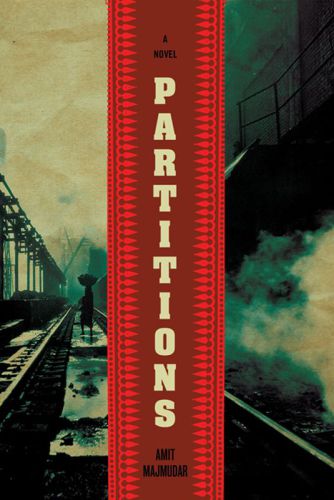
Partitions
A Novel
کتاب های مرتبط
- اطلاعات
- نقد و بررسی
- دیدگاه کاربران
نقد و بررسی

April 11, 2011
Poet Majmudar's unconvincing debut novel portrays the partition of India through the lives of two young brothers, a Muslim doctor, and a young, religious Sikh girl whose father tries to poison her rather than let her fall prey to marauders. The narrationâcourtesy of the dead father of the two boysâoffers ample opportunity for remarks about being dead, and as it charts the lives of the characters, Majmudar makes heavy use of both the concept of partition and the word itself as the boys are separated from their mother in a mobbed train station, the doctor makes his slow way to Pakistan, and the girl sets out alone armed only with kitchen knives. Tedious though not clumsy, the book subjects its characters to public defecation, sex slave traffickers, and to witness suicide, but even the dark ending can't shake the notion that the whole endeavor feels like a semisanitized and oversensationalized theme park ride.

Starred review from May 15, 2011
In his magnificent first novel, poet Majmudar (O°, O°, 2009) embodies the terrible days following the partition of India and Pakistan in the stories of four refugees from sectarian violence.
Keshav and Shankar are 6-year-old twins, separated from their mother in a crush of Hindus trying to get on the last train for Delhi from what is now Pakistan. On the same day in India, Dr. Ibrahim Masud arrives at his looted clinic, where the terrified gatekeeper tells him, "The city isn't safe for any Mussulman." Simran and her family are Sikhs; she flees as her father prepares to kill his wife and daughters rather than have them soiled by their Muslim neighbors. Observing them all is the spirit of the twins' dead father; his initially startling narration gives the novel the distance it needs to chronicle horrifyingly brutal events. Muslims stop a train full of Hindus and murder everyone on board. Men burning down a Muslim lawyer's house turn to douse a boy with kerosene, not caring that the child they're about to incinerate is also Hindu. The breakdown of civil order is epitomized by a young thug who snares the twins and sells them to a childless widow, then joins a roving gang looking for stranded girls to force into prostitution. They pick up Simran, but she escapes and finds refuge with Masud, as do Keshav and Shankar. The doctor stands at the story's moral center, treating the sick and injured of all ethnicities in the vast caravans of refugees streaming toward the India/Pakistan border from both directions. He's not the only one: A Sikh bus driver, a farmer and a prostitute all risk their lives to help others, "reminded...of a lost, golden past, before the invention of borders, when [kindness was] possible." Each character must grapple with the choice between kindness and cruelty, and the otherworldly narrator understands that either choice is equally likely in a world gone mad.
Written with piercing beauty, alive with moral passion and sorrowful insight—a rueful masterpiece.
(COPYRIGHT (2011) KIRKUS REVIEWS/NIELSEN BUSINESS MEDIA, INC. ALL RIGHTS RESERVED.)

Starred review from April 15, 2011
That this significantly poignant but never maudlin fictional excursion into relatively recent Asian history is the authors first novel is relevant to mention only because of its nimble use of history, rather than the clumsiness one might expect from a beginning historical novelist. The 1947 independence of the Indian subcontinent and its simultaneous division into the separate countries of India and Pakistan were, in a word, calamitous. Muslims fled to the new Pakistan, and Hindus to the new India, with Sikhs caught somewhere in between, amid ensuing violence that became extreme. Into this turmoil, Majmudar interjects three story lines for a frank but greatly human dramatization of the persecution each religious group experienced at the hands of the others. Two Hindu twins, little boys, search for their mother, whom they lost touch with in the mass exodus to Hindu territory; a teenage girl, a Sikh, flees for her life rather than be murdered by her father, who dreads that his daughter will be abused by marauding forces; and an old Muslim doctor eventually finds light at the end of the horrible tunnel into which his homeland has descended.(Reprinted with permission of Booklist, copyright 2011, American Library Association.)

























دیدگاه کاربران